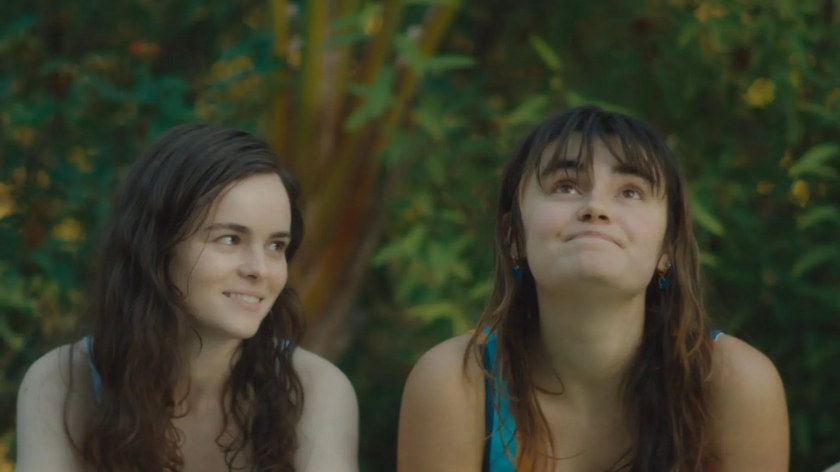Vassilis Kroustallis reviews the coming-of-age drama 'Remy & Arletta' by Arthur De Larroche (now on VOD).
Arthur De Larroche (Clairevoyant) directs 'Remy & Arletta', a new LGBTIQ+ film (now on VOD), a relatable and direct story of a confusing young woman who needs to make her own decisions. Based on a personal story, and adapted from her own novel, Micaela Wittman stars, writes, and co-produces this film of a friendship that needs to survive beyond all odds.
Early in the film's beginning, Remy (Wittman) enumerates to herself her various imaginary statements of fame, resting in her own calm fall Arizona countryside environment. The next shot is of a dead squirrel, which brings us back to reality. Her reality revolves around her alcoholic and abusive mother (Amy Benedict), and her only school friend, the less confused but equally ebullient Arletta (Riley Quinn Scott). Both girls start to explore their friendship in small touches of affection, yet the external world always intervenes -not in their favor.
Despite its short (but befitting for a micro-budget film) running time of 70 minutes, the tone of 'Remy & Arletta' is confrontational; sexual awakeness here won't come gradually, step-by-step. We are invited instead to a table tennis game of sorts; one happy incident precedes a cruel exchange and (sometimes) even physical cruelty. Remy does not have the privilege of a standard coming-out story (who has, really?). She can only move from one new situation to another (sometimes with a shaky camera accompanying her) and tests her own experiences.
The nano-budget film shows its limitations, yet it also enforces the interest in the characters' own trajectories. Remy understandably enjoys the largest share of narrative development. Yet, still, the film's screening time would permit more backstories for her mother and Arletta (the title's other half). Remy's mother, in particular, becomes more part of her own reflection (good or bad) rather than a fully-fledged character.
'Remy & Arletta' is also curiously shy in its erotic moments, preferring to put them either off-screen or as a potential appendix to the film's ending. Yet we are warned that this is a school where students need to study their own Bible, a religious undertone that Remy finds it difficult to shake off. 'Remy & Arletta' has its best heartwarming moments when the two main characters are around, and the raw performances of both actresses make it feel like we're watching a scene unfolding in front of our eyes. So do the songs by Simon Wilcox, which elevate the relationship into a lasting theme of friendship and longing.
Romantic friendship and its development can better describe the world of 'Remy & Arletta'; this is a world where the indifferent surroundings (and her always dark-lit residential place) have little to offer to the two young characters. Men (both young and older) are either too fixed to their sexual hunter role, too unsupportive to their partner, or too timid to take initiative in the film. So, communication (social media, phone, or simply a physical presence) is just the key to hanging on to survival, and the film does that admirably.
Not all dramatic mishaps register; the big dramatic party confrontation between the two friends seems forced (even though its dialogue line 'If I were to keep you as a friend', I'd have to date you' explains perfectly Remy's confused situation). 'Remy & Arletta' is more successful as a breezy, unpredictable affair of two young women who have just begun investigating the world beyond their doorstep. It has the look of a DIY film and the nerve of young filmmakers wanting to go beyond the essentials. Worth watching.
Vassilis Kroustallis


